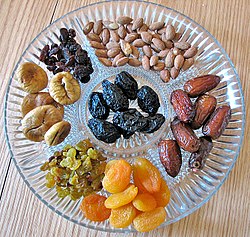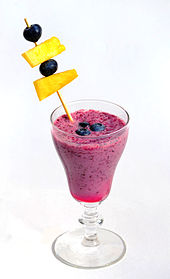
Lemon water is claimed to have powerful health and weight loss benefits.
Lemon water is simply the juice from lemon mixed with water.
The amount of lemon you use depends on your personal preference, and this drink can be enjoyed either cold or hot.
Some people also choose to add lemon rind, mint leaf or other ingredients.
Lemon water has become a popular morning beverage, since it’s been claimed to help improve your mood, energy levels, immune system and metabolic health.
Lemon Water Nutrition Facts
For the purpose of this article, the definition of lemon water is one glass of water mixed with the juice from half a lemon.
This is the nutrient breakdown for one glass:
One glass does not seem to provide a lot of nutrients, but drinking lemon water is a low-calorie and low-sugar beverage that can boost your vitamin C intake.
For comparison, if you replaced half a lemon with half an orange, it would double the calories and sugar in your drink.
Additionally, remember that the exact nutritional value depends on how much lemon juice you add, as well as any other ingredients.
Lemon Water Contains Antioxidants
Lemon water contains other beneficial substances, and is a source of plant compounds called flavonoids
Many have antioxidant properties that appear to help protect your cells from damage.
Flavonoids from citrus fruits are often linked with benefits for blood circulation, insulin sensitivity and other aspects of metabolic health.
Lemon flavonoids also have the potential to reduce oxidative stress and damage, at least in rats.
All that said, there are no human studies to support these findings, so they may not be as useful in real life.
Lemon Water May Help Treat Kidney Stones
Kidney stones are solid mineral formations that collect in the kidneys.
The most common type is made of a substance called calcium oxalate and is typically treated with a compound called citrate.
Increasing the amount of citrate in your urine is thought to prevent calcium from binding with other compounds and forming stones.
In short, citrate restores the urine’s ability to prevent kidney stone formation.
Lemon water contains high amounts of citrate, and numerous human studies have found it can successfully help treat kidney stones.
It appears to be most effective when used alongside potassium citrate, the supplement form of citrate. However, lemon water may also be a good alternative for those who don’t tolerate potassium citrate as a first-line treatment.
Lemon Water Has The Benefits of Regular Water
Lemon water is water with a bit of lemon added, which means it has all the benefits of regular water.
Drinking plenty of water is known to have benefits for:
- Weight loss: Increases feelings of fullness and boosts metabolism slightly, which can help with weight loss.
- Mental health: Optimizes mood and memory.
- Digestive health: Helps relieve constipation.
- Exercise performance: Improves athletic performance.
Does it Have Any Harmful Effects?
Lemon water is perfectly safe to drink.
However, the acid in lemons can damage your tooth enamel over time, which makes your teeth more prone to cavities.
You can manage this easily by drinking lemon water with a straw whenever possible, to avoid contact with your teeth.
Also, you should rinse your mouth with water afterwards. However, it is best to wait an hour before brushing your teeth. Brushing while your tooth enamel is an an acid-softened state can lead to damage.
If you’re taking the lemon water with breakfast, then it’s a good idea to brush your teeth before breakfast.
Does the Temperature of Lemon Water Matter?
The best temperature to drink lemon water is a highly debated topic.
For example, some claim cold water helps burn extra calories. Others believe warm water helps improve digestive health.
There is very little research to support either side, and it’s highly unlikely the temperature makes any meaningful difference.
Therefore, it simply comes down to what you feel like at the time.
How to Make Your Own Lemon Water
Most recipes suggest using the juice from half a lemon mixed with a glass of water. You can tweak the amounts from there or add other ingredients.
Take Home Message
Lemon water is a healthy drink that can add a good amount of vitamin C to your diet.
It’s a fantastic, flavorful alternative to plain water that has several health benefits.
However, if you already eat lots of fruits and vegetables and drink plenty of fluids, then lemon water will be of no nutritional benefit.
You should drink it for the taste rather than the health benefits.









